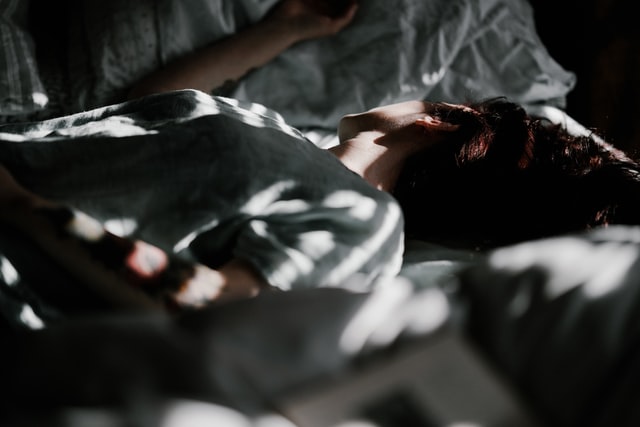By WIN Provider: Dana John Heimbecker, Registered Massage Therapist
“Sleep is the single most effective thing we can do to reset our brain and body health each day” – From Sleep Expert Matthew Walker PhD
To further add, sleep is the ultimate recovery tool to help release stress & trauma, boost immunity and optimize hormones. Adults need between 6 and 9 hours of sleep every night.
The following are some tips to optimize your sleep efficiently and effectively.
LIMIT THE USE OF ELECTRONICS BEFORE BED
Your body runs on a 24 hour biological clock that follows a 24 hour sleep wake cycle.
When the sun rises in the morning your body produces a stress hormone called cortisol which makes you feel awake and alert. As daylight fades the body releases another hormone called melatonin, promoting feelings of sleepiness.
When your retinas (eyes) are exposed to blue light (the light that emits from computers, cell phones and tv), the blue light in these electronics have been shown to reduce/delay the natural production of melatonin in the evening and decrease the feelings of sleepiness.
One way to combat the use of blue light would be investing in blue-light blocking glasses.
GET SUNLIGHT IN YOUR EYES FIRST THING IN THE MORNING
Getting sunlight in your eyes first thing in the morning (30-60 minutes upon wakening) helps set your natural circadian rhythm (biological clock) which helps your hormones naturally release cortisol (which makes you feel alert) and then later throughout the day it helps you release the hormone melatonin (which makes you feel sleepy).
LIMIT ALCOHOL, CAFFEINE, FOOD INTAKE
Caffeine is a stimulant that can keep you awake and disrupt your sleep. Caffeine is found in coffee, tea, chocolate & pop to name a few). Try to limit caffeine intake at least 6 hours before bed.
Alcohol can initiate sleep but then later acts as a stimulant with can also disrupt sleep. Try to limit consumption of alcohol to 1-2 drinks and at least 3 hours before bed time.
Eating too close to bed can disrupt your sleep cycle and not allow your body to get into full deep sleep throughout the night. This happens due to your metabolism being allocated to break down the food you digested and not being able to fully replenish your body in a deep sleep cycle .
OPTIMIZE YOUR SLEEP ENVIRONMENT
Most experts agree that the sweet spot for temperature is between 60 and 67 degrees Fahrenheit.
By making our bedrooms cooler, we can aid our bodies in cooling down to help induce sleep.
Blackout curtains can block out sunlight, bright streetlights, and blur out city noise which can help optimize your sleep and stay asleep for longer periods of time.
KEEP A CONSISTENT SLEEP SCHEDULE
Keeping a regular sleep schedule within an hour upon going to sleep and waking up (even on weekends)—maintains the timing of the body’s internal clock and can help you fall asleep and wake up more easily.
DON’T EXERCISE TOO CLOSE TO BED
Exercise secretes the hormone cortisol; exercising too close to bedtime can delay sleep. Try to aim for low intensity movement after your dinner to help promote relaxation & digestion.
Creating a night time routine that allows your mind/body to down regulate and prepare yourself for sleep will help optimize the full potential of getting a full night’s rest.
CONCLUSION
Sleep is one of the single most important components of life through health & wellness and by creating a bedtime routine and an optimal sleeping environment (listed above) will have profound effects on your internal and external well-being.


